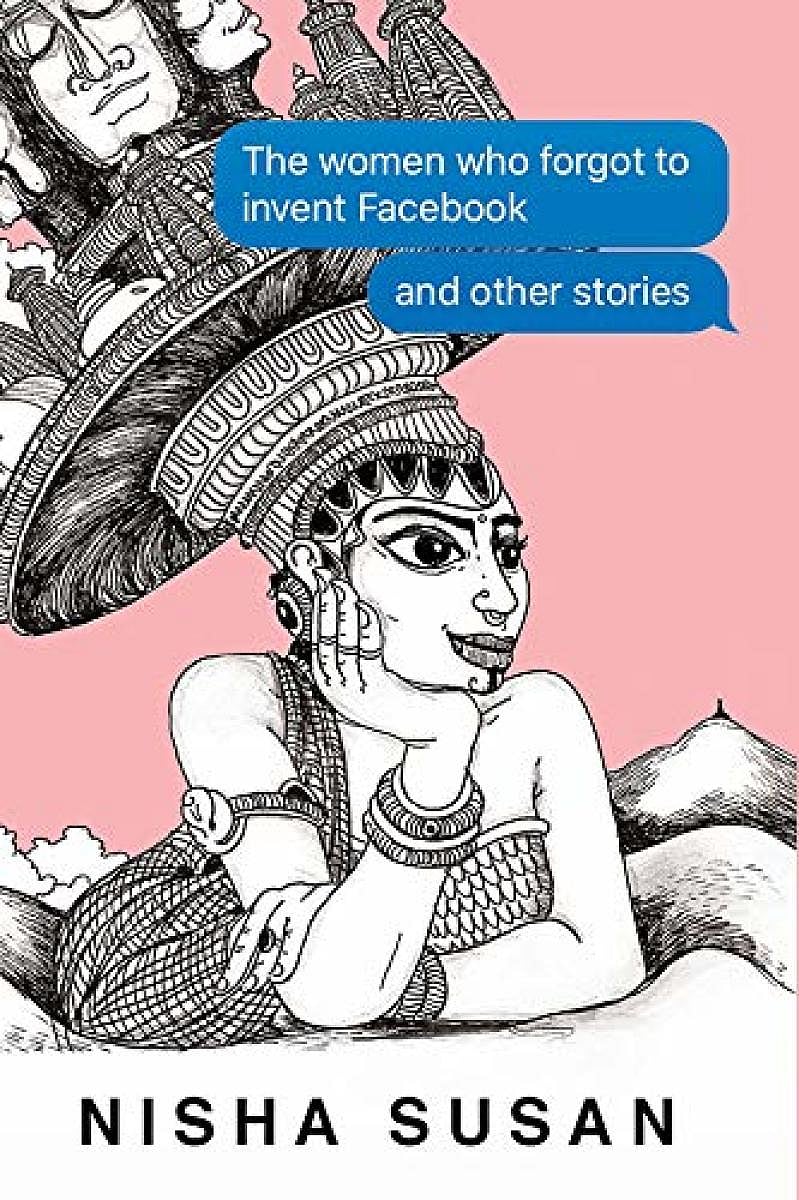
It’s that expectations thing. It can’t be easy to be Nisha Susan debuting her book of short stories. That’s because Susan, co-founder of a prominent website, is a top-notch chronicler of our life and times, with a perspective that walks the fine line between savage and gentle. Also because Susan shot into the national gaze as one of the people who formed the wonderfully named ‘Consortium of Pub-going, Loose and Forward Women’ and activated the Pink Chaddi campaign to protest the reprehensible actions of a certain Mr Muthalik; her clarion call was immediately picked up by women across the country and things were never the same again, for either Mr M or the rest of us.
However, here is Susan with her first book and she’s pulled off a good job. This collection of a dozen shorts has her maintaining her trademark voice and tart tone, loud and clear. She deftly draws the reader into her world, a world occupied by people very like us, people quite unlike us, people we’d love to be, people we’d be horrified to turn into.
Girl gangs and hapless men
We meet girl gangs anchored by strong but vulnerable women and learn that sometimes these ties are not eternal after all. We meet Blouse Mohan and immediately wish we had a tailor-master like him to stitch our blouses. We learn what can happen to girls who let their inner puppies get out of control; what kind of toll it takes on women whose job requires them to look at naked women all day; what sort of situation arises when a man runs into his former girlfriend, now (maybe/maybe not) happily wed to someone else. We meet women who plan to draw up a sex map and put it online, but get diverted from this stunning idea by everyday occurrences. We catch a glimpse of a mysterious ‘reading boy’ in a café and promptly long to hear more about him and his reading tastes.
We meet a writer labouring under the Imposter Syndrome, who considers her prose Dolly Partonesque — big-haired and over the top; we go into chat rooms with a girl and find that men specifically want her photo with Indian culture or without Indian culture. We watch people who stay with their partners in a ridiculously expensive Delhi rental, which didn’t even have the ‘fa’ of facilities. We meet Syed who has a face like the kind of pavum foreigner who comes for a two-week holiday to Bombay and has diarrhoea throughout. We watch a woman sitting at a table with a fixed, benign expression, like a woman in a Mahesh Elkunchwar play. And then there’s that story from under the quilt, which will have woman readers going yes, yes, yes.
Curveball characters
These are people who are connected to and via the world wide web. The other factor common to them all is that they are, to one woman, feisty. That feistiness is in one’s face at times, quite muted at other times. Life throws curveballs at these characters and they field them, not always deftly or gracefully; but they handle what comes their way and in the end, that’s what counts.
The book delves, though not too deeply, into the Malayali psyche and tells the reader what a woman wearing sleeveless clothing signifies; what it actually means to be a ‘frank girl’; it deconstructs the kanji personality; opines blithely that no Malayali can dance; shines a quick spotlight on the comment-adi gang and makes other such essentially Malayali reveals.
The stories are all somehow intensely personal in the telling and there is immediate affinity forged between the reader (all the more so if she’s a woman) and the protagonists. The style is fuss-free and direct; there is very little dialogue all through, but Susan sets it up so you don’t feel the need to overhear the characters engage in heated or languid debate. The humour is distinctly mocking, but very effective at demolishing moth-eaten, but still-going-strong tropes.
So. Is this chick-lit? While I think women are going to relish every word in the book, men are definitely going to read it too, if only to find out what Nisha Susan thinks about their species.